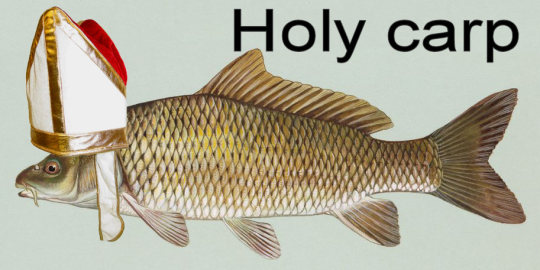#astraio
Note
“one fell first but the other fell harder” for ur ships pls!
sure!! I’m not gonna lie, I hope I’ve interpreted your ask correctly. :)
Dionysus fell first on Naxos, and you know what? He might’ve fallen harder too. Not that Ariadne doesn’t love him — she does! — he’s just that big of a simp for her.
Hera secretly fell first and then made it known after Zeus was pining for her, and yeah he fell harder
Poseidon fell first. Neither he or Amphitrite “fell harder.” Not sure how to elaborate but it just feels right
Eros fell first, Psyche fell harder. Their story is literally the definition of this(??)
Artemis fell for Athena — everyone told her Athena was too intimidatingly intelligent / uptight to fall in love with, but she did it anyways. Athena opened up and fell harder.
Aphrodite and Ares equally fell first and with the same intensity. Source? Trust me bro.
Ares fell first but was uncharacteristically too shy to say anything / awkward about it, but Apollo caught on and fell harder.
Heph and Aphrodite…I think they just really surprised each other. Her lowkey falling for him first wasn’t on either of their 21st century predictions bingo cards, and his ability to dote on her so damn much shocked him as much as it did her.
After the whole Adonis thing, Persephone and Aphrodite were like “truce? truce.” And Persephone realized Aphrodite was just sooo pretty and couldn’t hate her, and then Aphrodite was like “you know what? she’s hot too” and fell harder.
Hecate fell for Demeter first, seeing her fiery passion to find her daughter, and after the whole Persephone ordeal, Demeter could focus on having a relationship and fell harder
I don’t know abt the lore behind Eos and Astraios! But. I imagine he fell in love with the colors of dawn and would stay up to watch them rise even after a long night shift being a Titan of stars?? And he was like “I gotta meet who’s behind this!” and boom. He was so charming and genuinely sweet that she fell harder.
#this was harder than i thought#headcanons#!!!#not real#dionysus x ariadne#zeus x hera#poseidon x amphitrite#eros x psyche#Athena x artemis#ares x apollo#ares x aphrodite#hephaestus x aphrodite#aphrodite x persephone#hecate x demeter#Astraios x eos
83 notes
·
View notes
Text
The more I think about it. The more making Astraios mute makes more sense for his character.

Astraios is the titan of dusk, aka the DARK among the starry night sky. It's quiet like he is, but the actions within the night shows just how vibrant it can be like his own, even with his hand signs and creating new life to the sky above.
14 notes
·
View notes
Text
A STAR

Digital
I've gotten really interested in cosmology and astrophysics (thanks Stephen Hawking and Katie Mack) and felt inspired. So here is a deity or spirit of a star for you, do enjoy✨
11 notes
·
View notes
Text

Crest's Parents ✨
9 notes
·
View notes
Text
petition to change AnkerageSMP to AliSMP
reblog to sign
#rebranding because anker never fucking PLAYS ON THE DAMN SERVER#apparently she's got “responsibilities” or whatever smh#ankeragesmp#alismp#ankerage#itsastraios#astraios#minecraft#minecraft smp
10 notes
·
View notes
Text
ali astraios has done nothing wrong ever
(except for all the atrocities but they can be forgiven for those)
3 notes
·
View notes
Text
Expect an increase of content based around space because I have begun to worship Astraios, the titan god of stars, planets and astrology. I don't see much content based around him or really any worship so I guess I'll be filling in for that.
Praise the gods!
2 notes
·
View notes
Text
7th Dimensional Wall
On the earth, we have penetrated through another portion of memory layer that moves past our Solar System records and is connecting to the quarantine field called the Wall in Time. The Wall in Time is a quarantine field barring us from accessing many higher dimensions from the chaotic time of the Electric Wars. A huge war broke out over this First Root Race Seeding on 7D Future Earth Gaia, and…

View On WordPress
0 notes
Text
update!
been playing on the new ankerage server a bit, it’s goin rly nice, got some gear from villagers which is always nice to not actually have to work :3
i’m in the process of trying to write lore and will release it once it’s actually done in god knows how long
#don’t know what to tag the new server#Astraios is running it this time so i’ll refer to it as the AstraiosSMP i guess#AstraiosSMP
0 notes
Text
I couldn’t stop thinking about them. Had to write something short and sweet for the Titan of Dusk and Titaness of Dawn
****
Astraios missed her already.
Fighting off the remaining weight of sleep that tugged him into blissful rest, he moved to a sitting position and rubbed his eyes until she came into view. Even as a blur while his eyes adjusted to the soft glow of the dim lamp she opted for over the overhead light as to disturb his slumber as little as possible, she was beautiful.
Eos was always beautiful.
“Are you sure you have to go?”
She jumped, startled at the sound of her husband’s voice, quiet but gruff around the edges from being unused for the night — save for the times he’d drift in and out of consciousness just to tell her he loved her, of course. Turning to face him, she replied, “yes, my star,” and smiled softly at his ridiculous pout that she knew was only for show, a sly tactic both he and she knew he pulled out when he wanted to playfully guilt her into sliding back into bed for a few lingering moments. It was the closest step to begging he’d ever expressed.
But if he had to, he would beg, but only for her.
“You know how grumpy Apollo gets if I don’t jumpstart the day for him?” she mused more to herself than to him, but Astraios grunted with dissatisfaction all the same. He knew all right. It was a rhetorical question. Deciding to humor him, Eos glided to his side and placed a kiss on his head, one he leaned into and shut his eyes to savor. She heard him breathe out a sigh of acceptance of her departure.
“I shall return soon.” That was a promise, one she had never broken in all the millennia she’d lived to see the morning of…that she was the morning of…and in all that time, the titan of stars eagerly awaited her appearance. He didn’t know what he’d do if she had to be gone all day. Probably lose his mind. “And then I shall be all yours to command.”
He liked the sound of that very much.
There were only two times of the day this immortal disliked: when Eos had to leave to summon dawn, and when he had to leave to summon dusk. Some of the other immortal couples might say it was pitiful how enthralled with her he was to the point that every day he desired to spend with her at least a little of the afternoon they both had off, but he didn’t care. Those couples could go days, weeks, even months without seeing each other, but he couldn’t. He wasn’t that strong. Or maybe he was stronger for it. Either way, he and Eos? They were the two bookends of the day, their respective domains mirroring one another, the symmetry of their jobs a close metaphor for how balanced their personalities were. Though a titan, he wasn’t above silently thanking Hera for how blessed their marriage continued to be.
Before fully exiting the room, Eos looked back at him, letting her eyes wander over his half-bare form, and while the first best thing that could have happened to him in that moment was having her tucked back into his arms, when she said, “I shall think of you when I paint the sky momentarily”? That was a damn pretty close second.
The door clicked shut and he slumped back down, eyes on their bedroom window’s curtain that he commanded apart so he could observe the darkness melting away, and when it started to decay, his heart soared. Baby pinks and yellows and oranges slowly but surely replaced the night, merging into one another to the point where one couldn’t distinguish where one started an the other ended. The stars winked out of sight for the day, gone until their master told them to shine again, and Astraios smiled as his wife’s domain physically overshadowed — outshone, technically? — his own. His love of her presence, whether tangible or metaphorical, would always be enough to move the stars. Warmth filled Astraios. He didn’t realize it was coming from within himself instead of the environment until a cool breeze from the west danced into the room.
Damn, Zephyrus must be up early as well, he mused. Since when did my family become so enthusiastic with early hours of the day? He chuckled to himself, dismissing the ridiculous question away. He was just as obsessed with dawn, if not more, as all the mortals who rose with Eos just to capture pictures of the early morning sky.
He hoped she knew how photogenic she was.
And then suddenly she was back after handing the reins of the sun chariot to Apollo, and it was as if no time had passed at all. She slipped under the covers and he kissed her senseless before flipping them over so he was positioned over her, framing her face in his hands, cupping her rose-tinted cheeks with his palms, stroking the color with his thumbs. He couldn’t stop smiling. “And what now, my dear?”
She gave him a tiny shrug. “Why are you asking me? Like I said, ‘all yours to command’.”
21 notes
·
View notes
Text
The sun and moon both play a part into nurturing Earth's little beings; bringing comfort during the night, or bringing the joy first thing in the morning.
However, because of this they could only be together for a short while on some days. But-- when that one day does come, they finally could have some time and be one with one another.

"Hiya, my biggest and most handsum' hubby wubby around~~~ It's that time again during our monitoring hours, hm~? Let's say we get some cuddlin' down before we go on our merry ways."

She read his heart, loud and clear~ He knew a perfect spot upon a flowery hillside so they could watch the beings be in awe of two loves being together.
5 notes
·
View notes
Note
🐹
i very very much take that as a compliment actually <33333333333333333
1 note
·
View note
Text
Lucifer
Lucifer is a Latin word coming from the words lux, meaning light, and fero, meaning to bear or to carry. Literally translating to light-bearer.
Lucifer as a Roman Deity
Lucifer has had many faces throughout history. One of these being the Roman deity of the morning star, or Venus, considered the male equivalent of the goddess Venus. He is attributed to being the god of enlightenment and illumination. Lucifer is often depicted carrying a torch, and said to be equal in beauty to the goddess Venus. Due to being the morning star, I can also see Lucifer being associated with war as well. Especially considering his association with learning and knowledge, as well as that Venus also historically had war epithets.
In the Greek pantheon, they separate the morning star and the evening star into two seperate deities, being Phosphorus/Eosphorus and Hesperos. Eosphorus meaning “dawn-bringer”, and Phosphorus meaning “The bearer of light”. Phosphorus and Hesperos are the sons of Eos, Goddess of dawn, and Astraios, God of dusk. Phosphorus is the father of the Hesperides, nymphs of the evening time and light of the sunset.
Lucifer in Abrahamic Religions
Historically, Lucifer was never mentioned in the Bible at all. His name being associated to Christianity nowadays is due to a mistranslation of a poem about a fallen king. However, he is a big part of Christian culture now, and there are myths associated with him.
Lucifer was said to be the most beautiful and intelligent of God’s angels. He was God’s right hand. Until he defied God. There are many different versions of the fall of Lucifer.
One version of this story says that Lucifer became overly prideful of himself, his beauty, intelligence, power, that he thought himself worthy of being worshipped equal to God. Because of this, God cast him out of heaven.
Another version is that Lucifer was jealous of Jesus Christ. He gathered the angels and brought forward the idea of worshipping him instead of Jesus. Some of the angels sided with Lucifer, while others did not. There was a meeting between God, Lucifer, and all of the angels in which God said that their rebellion was unforgivable. There was a war between the two sides, but ultimately God and his angels won. Lucifer and the angels who followed him were banished from heaven.
Lucifer in Modern Witchcraft
In more modern witchcraft, there is a tradition which states that Diana, queen of witches, created Lucifer when she split herself into two pieces, darkness and light. She kept the darkness for herself, and Lucifer kept the light. Lucifer and Diana also have a child, Aradia. In this tradition, Lucifer is seen as the god of light, and masculine energy. One of the most influential sources for this tradition is The Gospel of the Witches by Charles Godfrey Leland.
Lucifer in Demonolatry
In demonolatry, Lucifer has many titles. Prince, King, Emperor, Lord. Lucifer is a demon of transformation, enlightenment, awakening, self-discovery, self-empowerment, and more. He is usually attributed to the element of air, and also pride.
Lucifer’s Associations
Anything with the * symbol next to it means that it is my own UPG.
Animals:
Snakes
Rams
Peacocks
Corvids (crows, ravens)
Cats
Spiders
Moths
Colors:
Black
Grey
Gold
Red
Teal
Blue, especially pale blue*
Purple*
Crystals:
Obsidian
Onyx
Hematite
Celestite
Seraphinite
Garnet
Sunstone
Clear quartz
Carnelian
Ruby
Copper
I am aware that copper isn’t a crystal.
Plants:
Apples
Pomegranates
Roses
Cinnamon
Cloves
Lavender
Blackberries
Sage
Black pepper
Garlic
Lilac
Spicy peppers*
Other:
Stars
The number 7*
Spring equinox
Autumn equinox*
Offerings
Strawberries
Blackberries
Chocolate
Apples
Pomegranates
Honey
Spicy foods*
Sweet things, especially baked goods
Juices, especially apple or grape
Coffee
Roses
Feathers
Devotional Acts
Shadow work
Learn about the sciences or the arts
Create art of any kind
Face your fears
Learn about any of his associated animals
Magical workings, especially those that fall under his sphere of influence
Learning in general
Developing your psychic abilities and spiritual senses (the clairs)
Spiritual progression
Anything marked with the symbol * means that it is my own UPG
219 notes
·
View notes
Text
it’s me, ali astraios
2 notes
·
View notes
Text
Mediterranean Trancework Part III: Prophecy

Prophecy is a bit hard to categorize in English. It can basically be distilled into the concept of truths humans shouldn't be able to pull out of thin air without divine assistance. And it can be hard to separate prophecy from divine madness without understanding the different ways that these things manifest. Probably the most important aspect of it comes in the form of Proof of State.
Proof of State is established in a lot of different ways in trancework but it is always present where gods and spirits are concerned. This helps to weed out charlatans because proof of state is hard to fake. If you can do it then you can do it, if you can't then you can't. End of story.
Spoken Prophecy is a skill and proof of state is established by being able to perform that skill. There is a reason why prophecy is given in verse in theatrical representations of it. It is because traditional Mediterranean forms of prophecy (not divination, there is a difference in mediums there) involves spontaneously composing accurate prophetic verses--often in song or some kind of rhyme. There are expected poetic formats for it as well. These link the number of lines, syllables, and meter to symbolic numbers related to whatever they are doing.
For instance, those who speak for the dead traditionally compose their utterances in 6 lines with each line possessing 9 syllables. Always in divisions of 3 because death dances and death traditions in general play off of the number 3 quite a bit and all of those things go together. These songs are usually improvised on the spot at funerals where these practices are still observed. These songs form the background of funerary dances so they have to fit the pattern to go with the steps that everyone knows.
A good living example of this tradition exists in the Corsican voceru (singular) or voceri (plural). A voceritrice will speak from the perspective of the deceased to call out the living who wronged them in life. They speak on injustice endured by the deceased as well as express feelings of longing and desires for what they have left behind. These poetic expressions are often then carved as epitaphs on the deceased's gravestone. Giving everyone a unique voice in death and giving the living a chance to atone for their misdeeds before facing the cursed consequences of a pissed off ghost. (Perhaps not exactly a haunting--unless they were murdered--but more of a curse that befalls the living when they do something bad to someone and that person then dies.)
Prophecy has very strong celestial associations. Gods and spirits associated with the stars, with birds, and with pretty much anything that floats in the sky will usually have something to do with prophecy in some context. I think the folkloric idea behind that is that the sky itself sees everything and therefore knows everything but I am sure there are multiple layers to it. Certain cults focus on it more than others. For example, the cult of the Mountain Mother involves some aspects of prophecy. It is an ability given to the Deity Brides of the Mountain Mother--who compels all kinds of spirits. It is also associated with the sun, poetry, music, and gods like Astraios in particular. It can sometimes be applied to the Muses as well because they compel certain individuals to speak divine truth--which is in the same family of concepts. Birds and snakes are both envoys of prophecy in that they embody spirits and pass freely between the spiritworld and the mortal world.
Not all snakes though. Snakes are kind of a wildcard in iconography. Their exact meaning depends on the other context clues that surround them. So, snakes shown in the context of Dionysian ritual are not implying prophecy--just the presence of spirits. And if you have been reading along on some of my other posts you may also be aware that spirits heckin lie all the time. So, you may very well receive messages from spirits but unless those messages are true and they pass from your lips in appropriate verse, that's largely regarded (folklorically) as spirit gibberish/ divine madness.
And before we go any further on prophecy, let us take a moment to talk about spirit gibberish. Glossolalia is the language of spirits. I believe the classical Hellenic concept for this can be translated as "belly talk." It is usually described as being done in a demonic voice--basically using your 2nd set of vocal cords--which hurts like hell if you aren't used to doing it. It sounds like gibberish, it is gibberish. You may be able to understand it in the moment but nobody else will and that is the big difference between these things.
Prophecy is true, comprehensive even if cryptic, and rare. Spirits babble pretty much constantly so divine madness and spirit gibberish are neither rare nor really something to act on. It is there as part of the expected landscape. It happens in trancework quite a lot, especially in spirit possession traditions. But even the highest ranking spirits that possess mortal bodies are full of carp. It is always best to ignore it.

(Bet you thought that was a spelling error. lol)
Divine madness may not come to you in a demonic voice. You may just feel an idea or phrase pop unbidden into your mind that sounds kind of wise. Go ahead and tell somebody about it or write it down and read it later and it will sound neat but will ultimately be completely useless. Divine madness is like a windfall apple. You didn't ask for it. You have no way of knowing where it came from. And if you put it in your mouth there is a good chance you will find it rotten. It is fun, sacred in its own way, but it is not prophetic and should not be treated as anything special.
We are all just human and all divine stuff can seem wise and actionable but only prophecy is true. Proof of state keeps these concepts separate where we can enjoy each of them for what they are. the other thing that helps to compartmentalize these concepts is the ritual itself. Prophecy, like other forms of deeper Mediterranean trancework, is initiated by a combination of legomena (sacred words) and deiknumena (sacred items) to get to the desired dromena (responses/behaviors).
To have some control over where your divine inspiration is coming from, and making sure you get a good source for it, you make an opening prayer to a trusted deity or spirit associated with the type of prophecy that you are seeking. Asking that deity or spirit to guide you by forming the words in your mouth and asking that those words be true. You will also burn fragrant things associated with that deity or situation. This establishes a proper divine link and gets you into a receptive state. Covering the eyes and removing excess stimuli can help a lot, veiling is pretty essential to maintaining the receptive state. Others might close their eyes. This is part of why the archetype of the blind bard is so entrenched in Aegean and wider Mediterranean prophetic folklore. It is because the eyes are a distraction and being without them implies a naturally more prophetic state.
The entranced will then hum or drone, sometimes while rocking in a seated position, and wait for the inspiration to come. If and when it does, it will be improvised completely on the spot. Some prophecies are short and sweet. If we add the divine composition of epics into this then they can just go on and on for hours. Droning and polyphonic chant are associated with states of divine inspiration, partially because they can be sensory blockers. Like closing or covering the eyes, the echoing sound of a drone (such as you might get while singing in a cave) reverberating back at you can help block out other sounds and make it easier to receive divine inspiration. Basically you are engaging in ritualized sensory deprivation.
So the opening prayer constitutes the initiatory legomena, the incense, veiling, humming, and rocking motions initiate the deiknumena, and the prophecy spontaneously composed in verse is the expected dromena--which also provides the proof of state if the utterances are true.
This can happen to anyone but it most frequently is associated with women (including Trans) and non-binary persons. Gender does have traditional spiritual authority here but folklore gets a vote, not a veto. The gods and spirits choose who can do it and when. Sometimes an affinity for doing it repeatedly can arise in a person. That can be taken as a sign of favor from a deity and may lead to a relationship as a Deity Bride.
Which brings us to the last post in this series.
Read more in Part IV: Deity Bridalwork
26 notes
·
View notes


